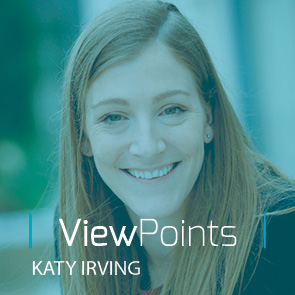
Katy Irving is a Senior Research Director and Global Head of Behavioural Science at Healthcare Research Worldwide (HRW). HRW is a global market research agency specialising in healthcare and pharmaceutical industries. Katy joined HRW in 2012; since 2014 she has led their innovation team and in 2016 she founded ‘HRW Shift’ team of behavioural science experts. She is a podcast host and regular conference speaker on innovation and behavioural science in the healthcare research industry. She has a BA from the University of Southern California and a MSc from the London School of Economics and Political Science.
Katy sat down with us to discuss the important role market research plays in the healthcare industry and how HRW is constantly innovating to serve clients.
How did you get into the world of healthcare research?
I fell into it, like I think a lot of us did! I did my master’s degree in communication where I was using quantitative research to understand how media representation creates and reflects society; my masters dissertation investigated the representations of gender in patient-physician interactions across TV medical dramas ‘House’ and ‘Grey’s Anatomy’. After all that academic work using surveys, interviews, semiotics, and desk research, I realised I loved ‘research’ and so started searching jobs that had the word research in the title! I managed to land straight into a leading healthcare market research agency: I knew I had found my niche and I’ve been in this same industry for 15 years.
Tell us a little bit about HRW and your role there?
HRW stands for ‘Healthcare Research Worldwide’ and we basically do that! We’re an ad hoc market research agency, working on qualitative and quantitative projects with the majority of the top pharmaceutical companies. Our whole reason for being is ‘accessing reality’ which means knowing that sometimes market research can give false or misleading responses, so we use a careful selection of methodologies, techniques, analysis, and expertise to get as close as possible to the true reality of people’s thoughts, feelings, and actions. I’ve been at HRW since 2012 and have a multifaceted role, my main role is as the Global Head of Behavioural Science where I head up a team of nine multidisciplinary behavioural scientists called HRW Shift to apply expertise and uncover the deeper psychological mechanisms behind behaviour. I also work in our innovation team; innovation is really at the heart of what we do at HRW because we prioritise finding new and different approaches to help us access reality, and we pilot and stress-test them to see whether they deliver in healthcare MR. We’re constantly piloting new developments; in the last five years we have worked with Google Glass, Implicit associations, eye tracking, facial coding, galvanic skin response, virtual reality, augmented reality, EEG, passive adherence sensors, wearable tech, and artificial intelligence. Sometimes innovations pass our scrutiny and some pilots lead us to not recommend it. It’s in this innovation capacity that I first heard about RealityMine.
What are big stories/trends in the healthcare research industry right now?
Obviously in the past year COVID has dominated headlines, not only because of all the support needed for companies developing vaccines and treatments, but also the impact on other conditions (e.g. mental health impact, lower rates of preventative care, impact of limited face to face contact on how HCPs are treating other conditions).
Artificial intelligence continues to be a big theme and healthcare is behind the consumer industry in using AI for market research, partially because our datasets can be smaller and require more confidentiality permissions to access.
How is the healthcare research industry adapting and changing to new legislation? (PII, GDPR)
We’ve been somewhat lucky because healthcare is a very regulated industry so we’re used to complying with legislation in the way we do research, consequently we already had procedures in place to ensure thorough informed consent, maintaining of confidentiality of our respondents and transparency when dealing with them. When GDPR came into effect, the biggest change has been to more clearly agree with the client who are data controllers, and we’re having to reveal the identity of the client more often to allow clients to view the research, where before GDPR, we could conduct more research blinded. GDPR been in place long enough now that most agencies and clients are fully accustomed to it, but as similar data privacy legislation evolve across the globe, our focus remains on building compliance into the very heart of everything we do.
How is HRW using RealityMine’s technology?
We’re using it to understand how patients are using their computers and mobile devices.
We’ve run studies looking at digital patient influencers in rare and invisible conditions: people who share their experience with a community on social media. This is a really important source in the digital age, patients with rare and invisible conditions look to online influencers to share information and form community. The RealityMeter tech was just the tool we needed to explore how these influencers search for information on their phone, tablet and desktop; how they spend their time online; and how what they’re consuming in digital media finds its way out to their audiences and communities. We were able to see not only how their information seeking impacted on their posts, but also how their use of Netflix, spotify, and online gaming impacted on their mood and then the tone of their social media personas.
We also used RealityMeter to look at how people use mobile phone apps for health behaviour change. There are millions of apps targeted at health uses but there’s not a lot that’s known about when and how people actually use apps. This technology gave us that insight; by recruiting people using mobile phone apps improve their medication taking (adherence) and people trying to reduce their alcohol intake, we were able to follow their real-world use of these apps over time. It challenged a lot of stereotypes about how often and how long people use apps, and has provided a lot of learnings relevant for our pharmaceutical and technology clients!
What place do you see for passive metering in Healthcare research overall?
I’m incredibly excited about the role for passive metering in healthcare research. For decades the healthcare MR industry has been trying to get a better idea of where and how people seek health information online. For both doctors and patients, pharmaceutical and healthcare businesses are often trying to understand which media channels to use to approach their audiences, when that audience is likely to be online, and the digital tools they use. Typical market research approaches have had to rely on either retrospective questioning, like ‘where do you look for information?’ which becomes super generic, or media use diaries where participants log their information searching behaviour, which is very labour-intensive for the participant so can still end up inaccurate or lacking granularity. Passive metering is the perfect solution in that it’s super easy for the participants because its passive, and it has got the levels of granularity that companies need about real-world information seeking behaviours.
What are you most excited about for 2021?
Well like a lot of us, I think I’m mostly glad that 2020 is over and excited about getting a vaccination and getting back to some form of travel, seeing people, and the gym! Professionally, I’m excited to observe which elements of the COVID-19 ‘new normal’ stick around in our world; whether there are technological efficiencies in healthcare delivery that we will retain, whether remote meetings help us do less air travel, and whether mobile phone contact tracing can be useful for other infectious disease management. I think we all learned a lot about ourselves in the year that’s just been and I’m excited to see how we decide to change things with that knowledge.
Lastly, if you could be anything, what would your dream job be?
I think I am already in my dream job, actually. I love what I do.



